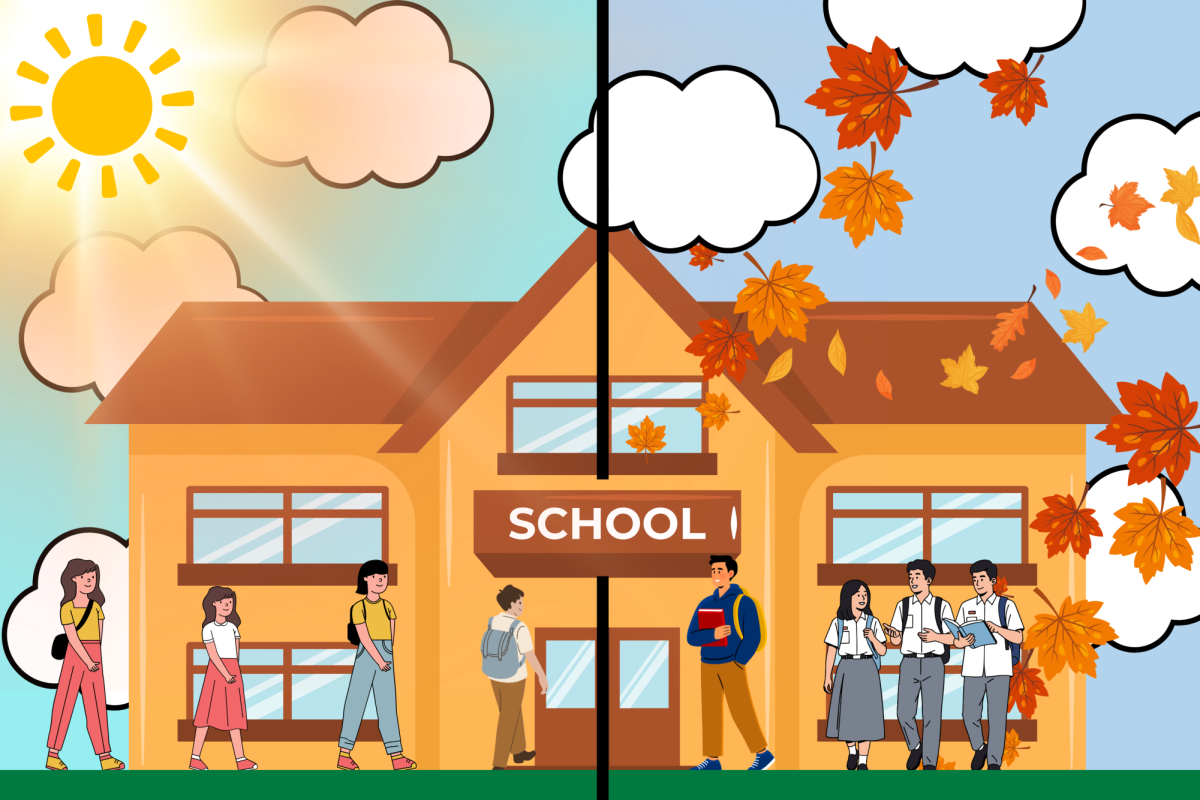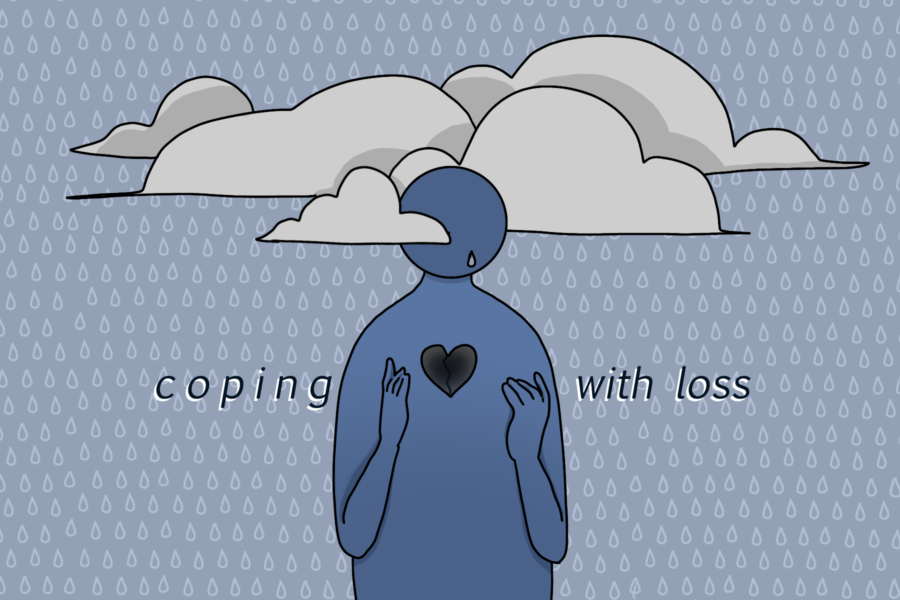Coping with Loss
May 26, 2021
When someone experiences the death of a loved one, a tempest of emotions can follow, often ones that grieving humans do not readily understand. The five stages of grief—denial, anger, bargaining, depression, and acceptance—anchor these complex feelings with concrete thoughts. These stages help people validate feelings and process a loss, fostering long-term emotional healing.
Grief accompanies a myriad of effects. For students, in particular, the stages of grief have “a significant impact on learning, academic performance, social and emotional development, and behavior,” according to Edison High School guidance counselor Martha Pinto. Feelings of anxiety and depression, as well as irregular eating and sleeping patterns often emerge during this time.
“It can be extremely difficult to focus on school work and complete assignments, or even just think straight when the brain is managing these thoughts and emotions,” Ms. Pinto adds.
Grief can feel like a burden, leading many people to suppress negative feelings associated with grief. Other times, people may regard grieving as a process that should happen under a certain time frame, or as a requirement to quickly move on with their lives. These mindsets, though seemingly convenient, are unhealthy and untrue. The healing and grieving process is “unique to every individual,” says Ms. Pinto. Even so, healing takes time and should occur naturally.
Since the healing process is often gradual, it allows a person to retain normalcy in their lives through coping. Edison High School’s Supervisor of Counseling Diane Braungard shares a few common coping mechanisms, some of which guidance counselors at Edison High encourage their students to utilize.
“Talk therapy… Listening to music… Moderate exercise… Or a new hobby,” suggests Dr. Braungard. Certainly, a variety of methods is necessary to accommodate people’s different healing mechanisms. For example, some like an open discussion, in which case they might engage in talk therapy, whereas others prefer internal reflection and could allow music to guide them.
Additionally, Dr. Braungard encourages coloring, journaling, and songwriting. Creative outlets such as these, in addition to being mentally and physically beneficial, can redirect one’s negative feelings and channel them into products they can dedicate to the person they miss. Regardless of which strategies one might apply, coping mechanisms encourage deliberation on a person’s thoughts and feelings while keeping the process as natural as possible.
Not only is the death of a loved one difficult for the person directly affected by the incident, but also for those around the individual; comforting the bereaved, in other words, can be challenging. Genuineness, compassion, and empathy are crucial when approaching a conversation about loss. Especially for school counselors, who speak with grieving students in order to ensure they are coping healthily, their end goal is communication.
“Create a safe space where students feel comfortable talking about what they want to and, if they are not ready to open up yet, that’s okay too. We have to be cautious to not make assumptions about how the student is feeling,” Ms. Pinto says. This advice applies to both school counselors and other individuals comforting the grieving.
During such difficult times, loss and grief are no foreign concepts. More than ever, it is important to support one another and communicate feelings effectively. Acknowledging personal struggle and advocating for yourself is a beneficial first step. If you find yourself handling more than you can bear, reach out to a loved one or counselor and find the coping mechanisms that work best for you. It is through support that we gain the strength to heal and the perspective to feel less alone.
Cover image drawn by Alyson Zhang ’21.
























































































